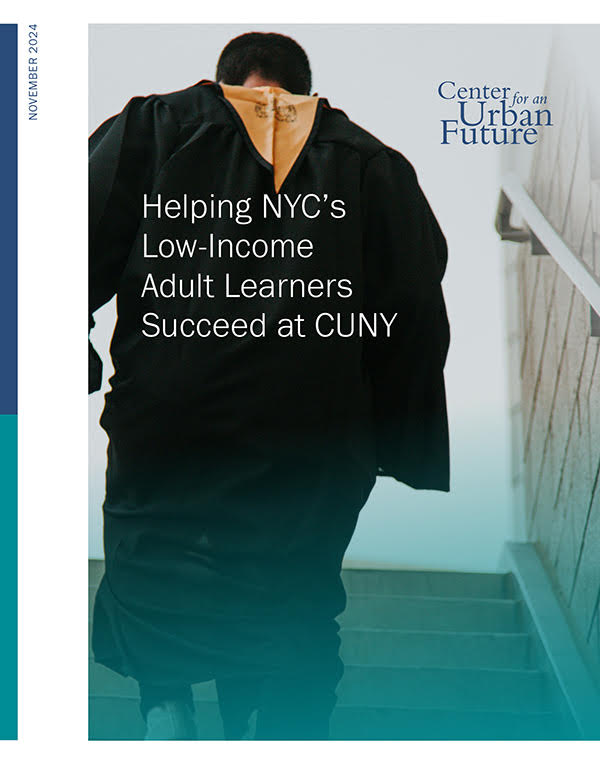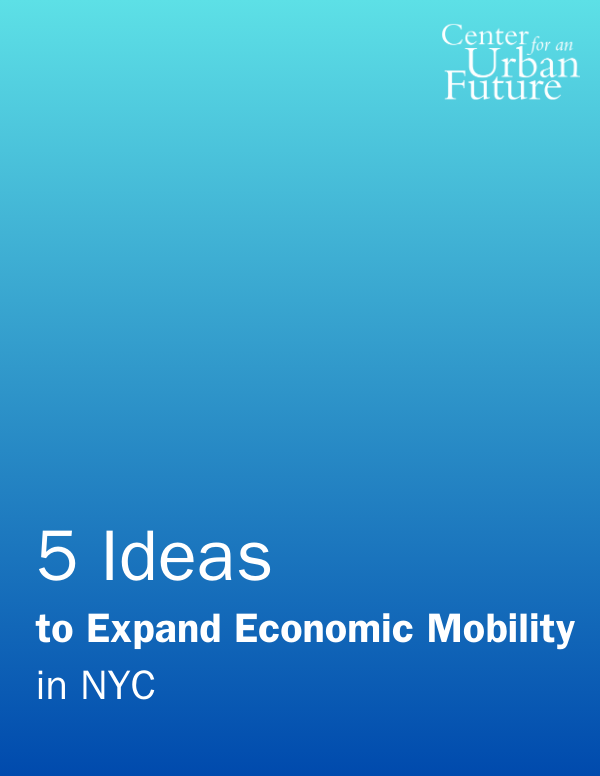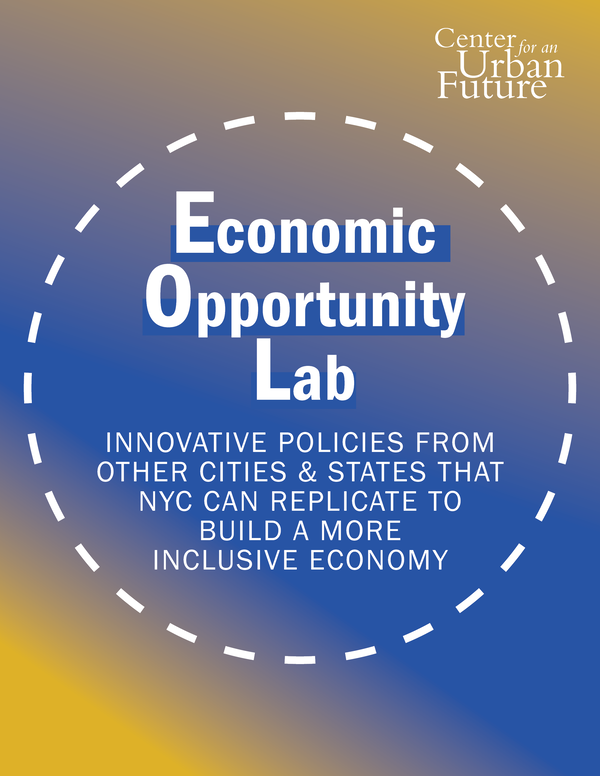Testimony of Eli Dvorkin
Knocking Down the Nontuition Financial Barriers to College Access and Success at CUNY
Editorial and Policy Director, Center for an Urban Future
Before the New York City Council Committee on Higher Education
Oversight Hearing on Removing Small Financial Barriers for CUNY Students
April 29, 2025
Good morning. I’m Eli Dvorkin, editorial and policy director at the Center for an Urban Future, an independent think tank focused on creating a stronger and more inclusive economy in New York. Thank you to Chair Dinowitz and members of the Committee for the opportunity to testify.
CUNY is already New York City’s most powerful engine of economic mobility. But with the right investments, it can help thousands more New Yorkers earn a college credential and move into the middle class.
One of the best recent examples is CUNY Reconnect, which has already helped more than 47,000 New Yorkers—the majority women and people of color—return to CUNY and resume their education, with over 8,200 students earning a credential so far. That’s an incredible achievement. But there is still a long way to go: more than 640,000 working-age New Yorkers today have some college credits but no degree.
Our research shows that one of the biggest barriers preventing more New Yorkers from reenrolling is unpaid balances—often less than $1,000. Even small debts can block students from coming back or cause them to stop out before finishing. As one nonprofit leader told us, even an unpaid balance of $250 “can be an incredible burden” that derails working adults from returning to college.
To help thousands more New Yorkers take advantage of Reconnect, we recommend launching a CUNY Fresh Start initiative to clear unpaid balances up to $1,000 for students who started but have not completed their degree. Fresh Start would build on the success of Reconnect and open the door for thousands more working adults to rejoin CUNY and reenter the economy stronger.
But getting students back is only part of the challenge. Once they return, they need the right supports to persist and succeed.
That’s why we urge the Council to support the launch of CUNY Flex: a model of wraparound support—including free MetroCards, hands-on advising, and technology access—for part-time students. Many adult learners, balancing work and family, simply cannot attend college full-time—and it shows: just 51 percent of adult learners who transfer to a CUNY senior college earn a bachelor’s degree within six years, compared to 65 percent of younger transfer students. Unlike ASAP and ACE, which are only for full-time students, CUNY Flex would meet students where they are.
In addition, we encourage support for a free MetroCard pilot for CUNY students. Our research has found that transportation costs are one of the biggest non-tuition barriers to college success—especially for the 90 percent of CUNY community college students who rely on public transit to get to class.
By knocking down these barriers, this Council can help thousands more New Yorkers enroll in CUNY, complete a credential, and get on the path to economic mobility, while building a stronger future for New York.
Thank you for the opportunity to testify.
_291_388_bor1_a4a4a4.jpg)





